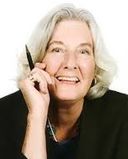
It's hard to imagine now but, as a girl of 20, I was not fond of the man who had just become my brother-in-law. I was even a little afraid of him during the early years of my marriage to his brother. He was gruff, irreverent and cynical, with a wry sense of humor that often left me wondering whether he was deadly serious or only joking.
Jim was nine years older than my husband, and eleven years older than I, which may have added to my awe of him. That, plus his "angry young man" attitude when he came home from WW II after four years in the Merchant Marines. At the time they were not considered veterans, and he joked with a sneer about being the only guy in the girls' registration line for classes at UCLA, while veterans of the Army and Navy had a separate line and got preferential treatment.
It was always a sore point with him that there were no benefits, no G.I. Bill of Rights for Merchant Mariners, in spite of having the highest casualty rate of any service during the war (1 in 26). It was not until 1988 (42 years later) that veteran status was finally granted to them. By then Jim was 67 years old.
How he came to be in the Merchant Marines in the first place was a story in itself. It seems that in December of 1941 he and a high school buddy were in Hawaii, taking a year off from college and looking for adventure. The two were doing construction work in Pearl Harbor when the Japanese bombed it. America was instantly drawn into a war that many in this country had hoped to avoid. Jim could have gone home and waited to be drafted, but instead enlisted immediately in the Merchant Marines.
I don't know if he mellowed over the years, or if I simply became more accepting and less frightened of his gruff exterior, finally realizing that it was only a facade. In time I came to love and respect him as much or more than any man I ever knew. He was Irish, and proud of it. My latest mystery, "Prescription for Murder," was dedicated to him, noting that he was "my inspiration for a wild tale about the Irish Mafia."
He wasn't perfect. Being highly competitive in everything he did––from playing tennis to driving a car––sometimes got him into trouble. I worried that his aggressive driving would get him killed in an incident of road rage on the freeway. I shook my head when his license was renewed for another five years on his 94th birthday, and he boasted that he would still be driving at 99. I didn't doubt it for a moment.
In fact, to see him swinging a pickaxe to dig up a portion of his yard for planting tomatoes, just this past summer, you would think he was invincible. He had always been a strong athlete, and liked to tell about beating Olympic Gold medalist Johnny Weissmuller in a swimming competition in their younger days, so it was hard to watch a man who had once seemed larger than life begin to slow down. Not long ago they put a pacemaker in his heart, and we all thought he would be his old self again in no time.
We were wrong. He grew steadily worse instead of better. Though I can't say it was entirely unexpected, considering his age, it was still a shock when the call came from his son, telling me that Jim was dead. Only a few days earlier he had said that he didn't mind dying; he had lived a very long and very full life. And indeed he had.
He didn't want a funeral, and no "fuss" made over him, so I was greatly surprised to learn that he had requested––and been granted––burial at the Arlington National Cemetery. Why in the world, I wondered, would he want to do that? Could the wily old fox have meant it as a sharp stick in the eye to some who still think that men who served in the Merchant Marines are not "real" veterans?
We'll never know the answer to that, but it doesn't matter. I'm immensely proud of him, and when he is laid to rest at Arlington my beloved brother-in-law will be taking his rightful place beside other heroes of our nation's conflicts.




